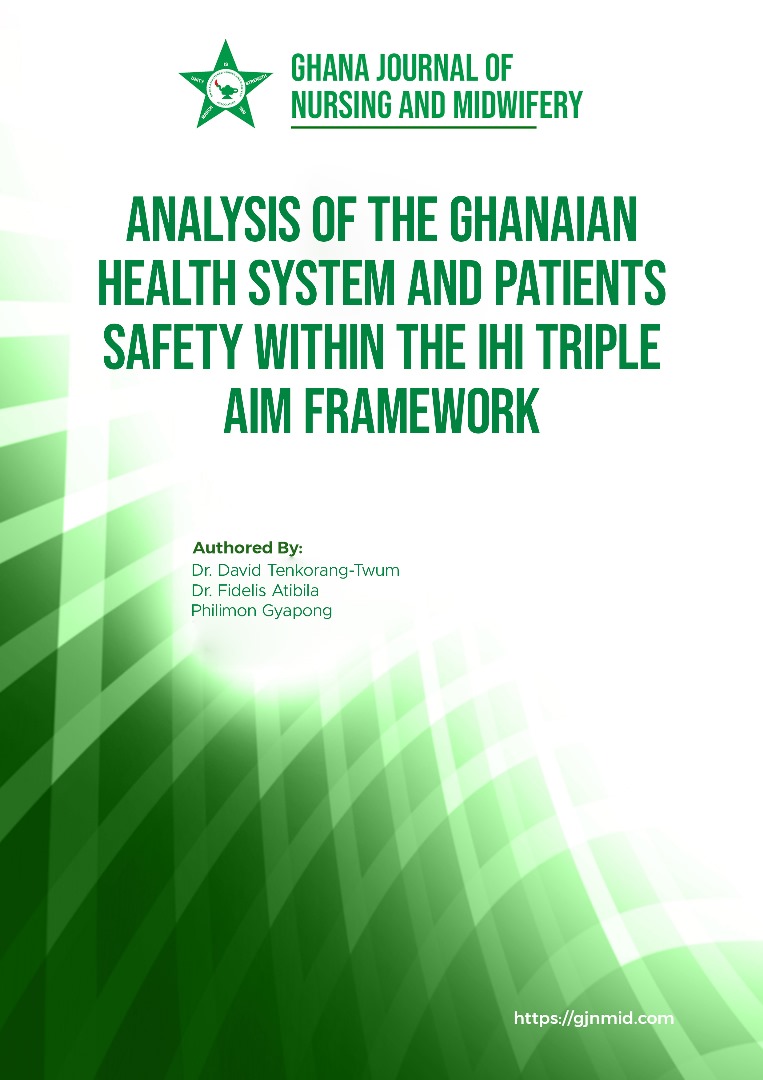Analysis of the Ghanaian Health System and Patients Safety within the IHI Triple Aim Framework
Main Article Content
Abstract
Objective: To analyze Ghana’s healthcare system challenges through the Institute for Healthcare Improvement’s Triple Aim framework encompassing population health, patient experience and per capita cost metrics.
Method: Dimensional analysis of peer-reviewed papers, government data and case studies assessed population health indicators and equity, literature on patient perspectives regarding quality and responsiveness of care along with evaluation of cost trends and deficiencies driving expenditure growth.
Results: Gaps persist in universal health coverage amid rural-urban disparities in access and financial protection. Care experiences vary significantly by socioeconomic status and geography. Rising costs attributed to inefficiencies in areas like procurement and prescriber practices.
Scientific Novelty: Unique application of Triple Aim framework for structured health systems analysis in a lower-middle income sub-Saharan country enabling robust diagnosis of coverage, quality, sustainability gaps.
Practical Significance: Demonstrates utility of balanced Triple Aim methodology for health policymakers in low-resource settings to systematically evaluate healthcare priorities across access, outcomes, experiences and costs.
Downloads
Article Details
Copyright (c) 2024
This work is licensed under a Creative Commons Attribution 4.0 International License.






